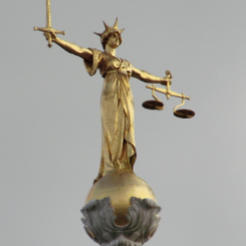The government’s attempt to repeal the Human Rights Act is not just a problem for civil liberties charities but for the voluntary sector as a whole, says charity consultant Belinda Pratten.
The Universal Declaration of Human Rights begins: ‘Whereas recognition of the inherent dignity and of the equal and inalienable rights of all members of the human family is the foundation of freedom, peace and justice in the world.’ The UDHR was drafted and agreed upon in the aftermath of the Second World War, when the atrocities of the Holocaust had become all too apparent. Never again should any person, or group, be treated as less than human because of where they are from, their race, religion, political belief, sexuality or other status: all are born free and equal in dignity and rights.
Yet on the 70th anniversary of the ending of the war in Europe, almost to the day, the UK government announced plans to repeal the Human Rights Act 1998, calling into question our international obligations and moral authority on this issue. It is not yet clear exactly what a new British Bill of Rights will contain, but according to Liberty proposals published last year suggested that some people would have more rights than others, while ‘serious’ cases would be treated differently from ‘trivial’ cases. This runs a coach and horses through the idea that human rights are universal, they apply to all of us, equally, just because we are human.
I am at a loss to understand how the Human Rights Act has become such a bogeyman in some quarters. Have those who set themselves against it actually read what it says? I have and I find no mention of a prisoner’s right to Kentucky Fried Chicken, nor any reference to pet ownership as constituting a right to family life (and nor have the Courts, more to the point). What is it they are against? The right to life, liberty and security? To a fair trial? Are they for torture, slavery and forced labour?
Human rights are a set of values and principles that protect and promote our humanity and our freedoms and prevent the abuse of state power. Some will say that the fight against terrorism can only be won if we curtail these freedoms. But surely it is precisely at such times that our commitment to these values is most tested; if we are found wanting, the fight will be lost.
More importantly few of these rights are absolute. The prohibition against torture or inhuman and degrading treatment is one, but others are circumscribed by law: the rights and freedoms of one person must be weighed against not only the rights and freedoms of others, but also concerns about national security, public safety, and other ‘such limitations as are prescribed by law and are necessary in a democratic society’.
In an increasingly diverse world, where people have cross-cutting identities and allegiances, it is more important than ever that we have a grown-up debate about these issues and where the line should be drawn. There are no easy answers, but recognising our common humanity and the interests of social justice – looking at these issues through a human rights lens – might be a good start. The Human Rights Act ensures that our rights and freedoms are protected by the rule of law, but we all have a responsibility ensure that these values and principles are brought to life and given practical force.
Organisations such as Liberty and Amnesty UK are leading the defence of the HRA and have played key roles in busting some of the myths that persist. But human rights belong to all of us, their defence is too important to be left to ‘special interest’ organisations. Voluntary action has long been driven by a sense of social justice and fair play; by a belief in the inherent dignity and worth of every person, however vulnerable or marginalised. And for that reason our sector has been at the forefront of campaigns for human rights, from the Abolition of Slavery in the 18th Century to support for refugees and asylum seekers today.
Indeed, an active and vibrant civil society is founded on the centuries-old demand for freedom of association, including the right to join voluntary and community organisations, trade unions or political parties. And freedom of speech, the right to campaign, remains central to what we do, in spite of attempts to curb our voices. These rights guarantee our independence and ensure that, when necessary, civil society can be a vital check on the power of the state. The HRA protects these rights and freedoms. It is very much about us.
A bill of rights must protect everyone equally, or it is not worth the paper it is written on. It must ensure that every person, no matter where they are from or who they are, is treated fairly, with dignity and respect. And it must recognise the need to balance the rights and freedoms of one person, against those of others and of society as a whole. That is what the Human Rights Act does. And that is why this issue is relevant to all voluntary and community organisations: why we all need to speak out and save our human rights.
Belinda Pratten is a charity consultant and chair of the Woman's Resource Centre









